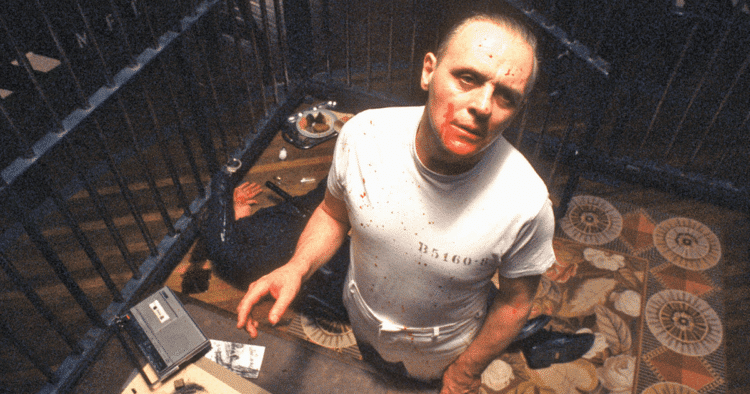Why Hollywood villains love classical music
mainFascinating essay by Ted Gioia in the American Scholar on why Hollywood identifies evil with classical music.
For Hollywood, classical music has become the trademark of villains. On screen, orchestral melodies accompany the meditations of mad geniuses and pouting serial killers. Norman Bates practices the Moonlight sonata in Psycho II. Sociopath Lou Ford relaxes to Richard Strauss throughout The Killer Inside Me. Alex Forrest, in Fatal Attraction, plots her revenge while listening to Madama Butterfly. And on the BBC’s Sherlock, Moriarty waltzes to Rossini’s The Thieving Magpie on his iPod as he steals the Crown Jewels from the Tower of London. Baroque music, in particular, seems to satisfy the cravings of a deranged mind. The very talented Tom Ripley plays Bach between shifts as a symphony-hall bathroom attendant. In Schindler’s List, a Nazi officer pauses to play a bit of Bach on a piano while his troops massacre the Kraków ghetto. Hannibal Lecter waves a bloodied cudgel like a conductor’s baton while brutalizing two security guards to the Goldberg Variations in The Silence of the Lambs, and in the sequel the same piece plays as Lecter cooks Paul Krendler’s brains table-side. In cinema psychographics, mid-murder is the ideal time for musical appreciation….
Read on here.






I think the reasons for classical music’s use in this way is simply that classical music implies to a mass audience more complexity of emotions and something usually listened to by “respectable” bourgeois society. Most people were all told at school or my their parents that it is a “good” music, even if they didn’t or don’t like it. Therefore by juxtaposing classical music with a sinister evil character, you contrast “good” with evil and imply that the evil character has a sensitive mind, yet does exactly the opposite. That contrast highlights the character’s evil even more and leaves a grain of doubt as to whether the evil character could actually have a soul. Classical music used like this serves as a contrast medium to make the character even more complex and even more evil.
The human mind is capable of putting different things in different, unrelated boxes:
http://subterraneanreview.blogspot.com/2018/08/entartete-kunst.html
Comes to show that classical beats antisocial rap any day.
He mentions Norman Bates in Psycho II, but fails to mention that Hitchcock included a breif subtle hint at Norman Bate’s love for classical music already in the original Psycho film. Near the end as someone is searching through the Bates home the camera shows an LP record on the turn-table and it is Beethoven’s 3rd Symphony “Eroica”.
Let’s not forget the Ride of the Vakyries in ‘Apocalypse Now’ or Bartok in Kubrick’s ‘Shining’
Kubrick made extensive and very intelligent use of classical music in his films.
https://www.youtube.com/watch?v=muPNlnm_i44
Thoughtful use of classical music in movies is a topic for another discussion – a very interesting one, I think. Hope Mr. Lebrecht gets the cue.
Is Hannibal Lecter’s Bach worse than his bite?
Ouch!
Well, ok, this goes in the category of “interesting, but well trod, cultural theory”, but if it is to be a real rigorous analysis, one’d have to compare ALL genres of music associated with films or scenes or characters of “evil” in the cinema.
Then, if x% of “evil” films/scenes/characters are associated with classical music, then you have a phenomenon.
So far, we have no baseline to compare classical music to.
What if, in fact, the majority of “evil” films/scenes/characters are associated with rock or rap music?
The problem begins with how the author defines “evil”. He limits his definition of “evil” to a certain aesthetics.
But inner city drug and gun violence can certainly be “evil” and most films about inner city drug and gang violence play … rap music.
If the author excludes such films as “evil”, then of course, he will only focus on examples of classical music.
Great essay. The demise of classical music in the movies has frustrated me for years. One needs to look no further than The Lady Killers to see how bad things have gotten. The brilliant Ealing Studios version from 1955 has the gang playing the charming minuet of Boccherini. In the wretched Disney remake from 2004 makes a short nod to the original, but most of the music is hip hop, blues, and other “popular” forms, completely missing the irony of the original film.
Michael Gielen, a giant of conducting , passed away yesterday in Mondsee.
The Schindler’s list example always struck me less as villainous theme music but as an indication that these young German men carrying out this monstrous deed nonetheless thought themselves good, cultured Germans – they know their Bach! – and oblivious to the paradox, or doubtful that there was one.
An entirely plausible, additional explanation of declining interest in and respect for classical music in the US. But surely the association with evil will be a relief for lots of people, also in Europe.
That’s not the whole story. Dudley Moore portrayed goofy musical characters, though I always think he was at his best with his real life Beethoven spoof on the theme from the “Bridge over the Kwai river”.
https://www.youtube.com/watch?v=GazlqD4mLvw
For better or worse, Gioia doesn’t follow his argument to its logical conclusion. Cultivated European who controls the world = rootless cosmopolitan with dual loyalty. We all know who -those- people are. Cong. Omar just reminded us.
There are countless examples of intuitive – and counterintuitive – use of classical music in quality films. For instance, great Iranian filmmaker Abbas Kiarostami’s Under the Olive Trees (a film about Iranian farmers) ends with a very clever use of Cimarosa. Wagner appears in Maurice Pialat’s L’Enfance nue for about 10 seconds, but this is the ten seconds you are not going to forget. An electronic transcription of Bach’s ‘Ich ruf zu dir, Herr Jesu Christ’ appears in Andrei Tarkovsky’s Solaris (1972) to great effect. But to echo the original point, the same music appears in one great episode of The Twilight Zone ten years ago, The New Exhibit, about the curator of a wax museum exhibiting famous murderers eventually becomes a famous murderer himself and enters the hall of fame.
One must not forget Alex, in A Clockwork Orange, who practiced onanism to the second movement of «good old Ludwig van»’s Glorious Ninth…
Although Kubrick has used extensively classical music in his films, this is the only occasion where an «evil» character was actually a committed fan.
Berlioz said that hearing Haydn‘s Creation made him want to murder somebody. I can see that such relentlessly affirmative music can unleash uncontollable anti-social impulses: an interesting field for musicologists-criminologists.
Maybe Berlioz would have been pleased to know how his music would be featured in “Sleeping With the Enemy.”
I continually find that a quote from classical music in a film usually has a titular correlation with either the situation or a character’s thoughts. A recent example of that (although I can’t recall the film’s title) was the story of a frustrated woman artist who contemplated killing a male detractor. Her background music in a critical scene was “Vissi d’arte.” I often hear clips from arias from Bach oratorios that actually telegraph a character’s thoughts: example — “Ich habe genug.” Knowing the classical music literature, I’m often able to help my film-going companions (who are not familiar with that genre) understand plots on a deeper level.
That reminds me of the announcement made on a German radio station before a concert: ‘… und nun die Kantate Ich habe genug von Johann Sebastian Bach’.
This one’s a simple answer: Because classical music suggests that the villain is intelligent. It’s a stereotype, and some may or may not find it to be a harmful one when comparing it to people who actually enjoy listening to the same genre. When designing a villain and having them listen to the music in-scene, it alerts the audience that this particular villain has a higher sense of self than the others around him. If you were writing a brutish villain, maybe one who wasn’t as smart, then you wouldn’t have them listen to classicals, as it would create a plot hole, or character conflict. You would have a complex character listen to it, such as Hannibal, or a Bond villain do it.
However, I would really calculate it’s usage, as it could make a villain look too cookie cutter; really ask yourself if the timing is right, before you include classical music and a villain’s presence, and remember to be unique with it.